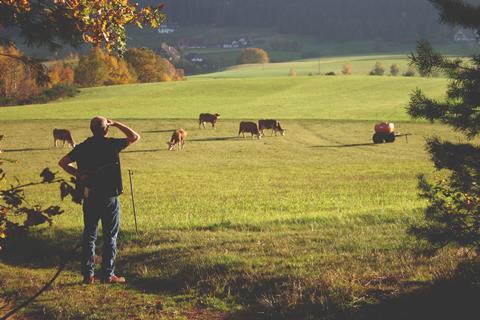ABP Food Group has launched the year two report of its Programme for the Improvement in Sustainability of Red Meat (PRISM), finding that 48% of consumers are willing to pay more for sustainable meat and fresh produce according to a YouGov poll.

The farmer-led initiative, launched in 2022, aims to help beef and lamb producers reduce their environmental footprint while generating the data the wider industry needs to demonstrate progress and meet future policy and procurement requirements.
Phil Hambling, ABP’s director of agriculture and sustainable sourcing, commented: “There’s been a lot of attention on livestock emissions, but it often overlooks the nuance of UK production systems.
“British farms work within complex natural cycles, managing carbon, nutrients, biodiversity and animal welfare. PRISM 2030 is about collecting robust data and academic insight to tell an incredibly strong sustainability story so consumers and customers can stay confident in British red meat.”
More than 300 farmer suppliers are now involved in the programme, each having undergone a second carbon footprint assessment via Agrecalc. They then receive individual recommendations from The Andersons Centre and Professor Jude Capper of Harper Adams University.
“Customers expect clear standards on sustainability and welfare. Our role as a processor is to validate those standards with evidence, and to communicate them clearly throughout the value chain.”
Phil Hambling, ABP
Hambling continued: “It’s not about telling farmers how to farm. It’s about offering tools and insights to make informed choices that benefit both the environment and the performance of their business, so that they can continue producing a fantastic product.”
ABP said that PRISM 2030 complements “significant progress” already made at processor level, including switching to 100% renewable electricity, reducing plastic use by 60% and cutting water consumption by 47%. The company went on to say that with around 90% of red meat’s carbon footprint originating on-farm, “driving improvement at farm level is key”.
Hambling concluded: “This is about building trust. Shoppers, retailers and foodservice customers expect clear standards on sustainability and welfare. Our role as a processor is to validate those standards with evidence, and to communicate them clearly throughout the value chain.
“British red meat has a powerful story to tell on sustainability. Now we’ve got the data to tell it with confidence.”















